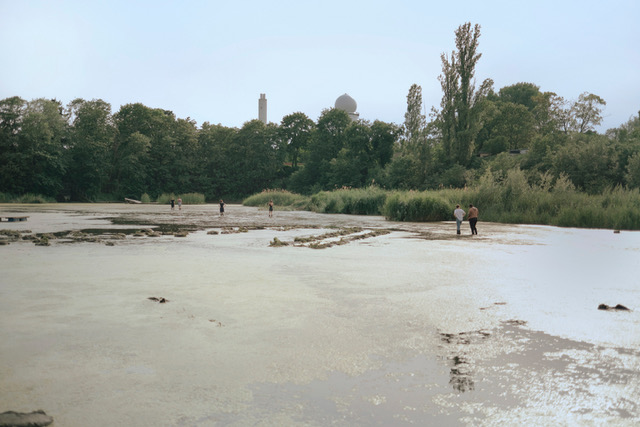Studio Hybrid Infrastructures
Master Studio
Teaching
See down below for student projects.
—
Today, urban infrastructures have become complex and messy. They can be seen as much more than just old pipes, cables, and containers. Urban infrastructures are deeply entangled with the landscape and the biodiversity of the environment in which they intervene. This entanglement is further complicated by the fact that urban infrastructures are traditionally sites of expertise. These infrastructures appear difficult to read and, as a result, impossible to alter.
But what happens when an urban infrastructural space is opened up, its function hybridized and its use collectivized? What protocols, routines, schedules and choices manifest when an urban infrastructure is infused with care: softened and layered with diverse meanings? Can these new circumstances transform urban infrastructures into spaces for commoning and stages for public debates?
The urban design research studio takes on the site of Floating University – the rainwater retention basin serving Tempelhofer Feld – and the situation of Floating e.V. – an in-depth cohabitation between the constructed water infrastructure, its human culture and its other-than-human overlays.
Departing from the idea of learning as a form of living and responding to contemporary conversations about social and environmental justice as well as histories of alternative narratives for urban development the studio’s point of convergence is the feminist approach to spatial practices. This approach is reflected in the emphasis on the very process of space-making and its collective nature over its finite form, as well as on the inclusion and recognition of the equally significant agency that all objects (buildings, infrastructures), people, and species have in the continuous co-creation,maintenance and reconfiguring of all material relations within the built environment.
Students are invited to engage with the site and its complex ecology while acknowledging that we are situated in relation, in cohabitation, with an infrastructural site and its many living forms. After an initial collective research phase, students develop their very own site-responsive projects: from small interventions, theoretical propositions to playful, imaginative spatial strategies in a variety of formats for this hybrid infrastructure.
Instructor: Rosario Talevi
